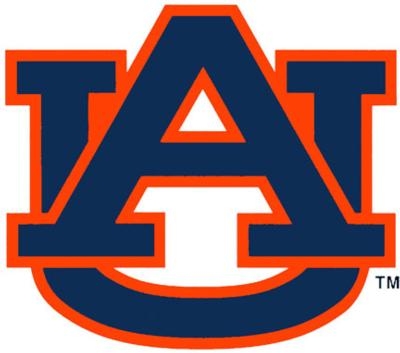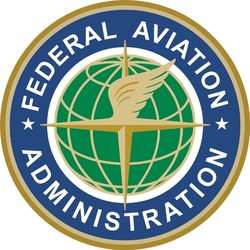Sat, Sep 21, 2013
Graduates From The Program Can Reach The Cockpit In 1,000 Hours
Aviation graduates from the Auburn University Raymond J. Harbert College of Business will be eligible to earn an Airline Transport Pilot (ATP) certificates with as few as 1,000 flying hours rather than 1,500 hours, as mandated by a new law which took effect on Aug 2.

The FAA recognizes the quality of graduates from top collegiate aviation programs, and is sanctioning those institutions to certify its students for hiring with as much as one-third fewer flight hours – modifying the August legislation. Auburn is currently one of just six such schools nationally with this designation, although other schools have submitted applications to join this group.
“This is another ... endorsement of the quality of the aviation programs at Auburn,” said Dale Watson, Director of Aviation Education at Auburn. “Best of all, it is a tremendous benefit to our students. The time and cost savings associated with a reduction of 250 to 500 flight hours is enormous.”
The new legislation requires pilots be at least 23 years old with a minimum of 1,500 hours of flying experience to qualify for an ATP certificate. Watson said the law was a direct result of the Feb. 12, 2009, Colgan Air (regional commuter for Continental) accident near Buffalo Niagara International Airport in New York. All 49 people aboard were killed.
“The survivor group for that accident has arguably been the most influential of any in the history of commercial airlines,” Watson said. “This group was particularly effective influencing members of Congress and the Transportation Subcommittee; the law involves pilot qualifications – normally an issue for the FAA to regulate.” But Watson, and others, believe quality flying time is more important than the number of hours flown.

The specialized accrediting body for aviation programs (AABI) was one of many entities to testify before the Transportation Subcommittee on behalf of collegiate aviation programs and objected to the proposed law, Watson said. “The point was … quantity doesn’t equal quality,” he said.
Auburn and a few other institutions worked in partnership with regional airlines to develop a Pilot’s Source Study. “We used pilot performance during initial training at the airline as a measure of quality,” Watson said.
Watson reported that results revealed the top performers typically had between 500 and 1,000 hours of flight experience, came from collegiate aviation programs and were certified flight instructors. “This proved our hypothesis to be true,” Watson added.
The study revealed that it is quality of experiences, not the quantity of hours flown that is the best predictor of pilot performance. The law was passed anyway based on a minimum number of required flight hours. However, the research team’s work didn’t go to waste. “They (Congress) did allow the FAA administrator the authority to mitigate how that law is implemented,” Watson added. “That’s what came out this summer – the new FAA rule allowing for graduates from collegiate programs to be hired with less than 1,500 hours.
“We are delighted to earn this authorization from the FAA. This is on the heels of JetBlue approaching us to establish the University Gateway Program, which is a super opportunity, particularly in light of the new law. It’s also on the heels of an international airline selecting Auburn to educate and build some of their future pilots for the airline. This level of industry engagement is a top measure of merit for us – and one we continually work to build upon.”
Auburn’s aviation program is the second-oldest in the nation.
More News
Aero Linx: International Business Aviation Council Ltd IBAC promotes the growth of business aviation, benefiting all sectors of the industry and all regions of the world. As a non->[...]
"During the annual inspection of the B-24 “Diamond Lil” this off-season, we made the determination that 'Lil' needs some new feathers. Due to weathering, the cloth-cove>[...]
Also: Bushcat Woes, Hummingbird 300 SL 4-Seat Heli Kit, Carbon Cub UL The newest Junkers is a faithful recreation that mates a 7-cylinder Verner radial engine to the airframe offer>[...]
Also: Seaplane Pilots Association, Rotax 916’s First Year, Gene Conrad After a decade and a half of struggling with the FAA and other aero-politics, G100UL is in production a>[...]
Also: Martha King Scholarship, Montaer Grows, Textron Updates Pistons, FlySto The FAA is hiring thousands of air traffic controllers, but the window to apply will only be open for >[...]
 ANN's Daily Aero-Linx (04.16.24)
ANN's Daily Aero-Linx (04.16.24) Aero-News: Quote of the Day (04.16.24)
Aero-News: Quote of the Day (04.16.24) Airborne 04.10.24: SnF24!, A50 Heritage Reveal, HeliCycle!, Montaer MC-01
Airborne 04.10.24: SnF24!, A50 Heritage Reveal, HeliCycle!, Montaer MC-01 Airborne 04.12.24: SnF24!, G100UL Is Here, Holy Micro, Plane Tags
Airborne 04.12.24: SnF24!, G100UL Is Here, Holy Micro, Plane Tags Airborne-Flight Training 04.17.24: Feds Need Controllers, Spirit Delay, Redbird
Airborne-Flight Training 04.17.24: Feds Need Controllers, Spirit Delay, Redbird




